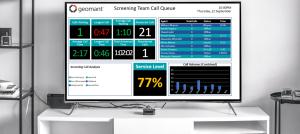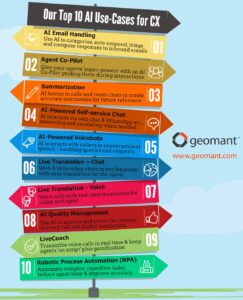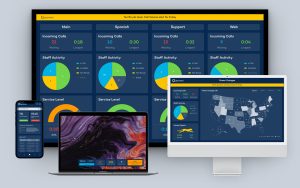In Q2 of 2019, WBR Insights surveyed 100 Heads of Risk and Compliance from leading asset managers and investment firms from across Europe to find out more about the challenges they face and the trends they observe with regards to regulations, emerging new technologies, and regulatory technology (RegTech) investments for the years ahead.
What do the results of the resulting survey report, Data Capture, Automation and Surveillance in the Digital Age: A New Horizon for Financial Trading Compliance, tell us about the current challenges and approaches to communication recording, automation and surveillance for the financial community?
1. We Are Entering a New Era In Financial Communication Compliance
Firstly, a paradigm shift is underway in financial compliance – driven by a changing regulatory landscape, the use of new communication channels in trading, and emerging new technologies. The survey reveals that over two thirds (67%) of organisations have already adopted, or are in the process of implementing, AI and robotics for communication capture and surveillance.
Given concerns about the increasing cost of compliance and resource constraints, it is hardly surprising that companies are increasingly looking for these solutions to reduce risk and enable holistic controls. And why not? They help compliance teams gain efficiencies, make sense of vast amounts of unstructured data, monitor their compliance infrastructure, and prevent financial crime.
The survey also indicates that capturing, aggregating and analysing omnichannel data are considered top compliance concerns. In light of the massive adoption of new digital channels used on the trading floor and the recent regulations governing them, companies need to be prepared to keep unified communications, enterprise collaboration and mobile interactions within compliant boundaries.
2. Communication Recording Is Just The Beginning
The responses also underpin the trend that captured voice streams and eComms are increasingly leveraged to reconstruct trade events, identify market abuse and demonstrate best execution to the financial regulator. Effectively bringing this information together with transactional data will be key to generating improved oversight and enabling broader analyses.
Furthermore, MiFID II remains one of the most pressing regulatory challenges across Europe. The Directive—and other new regulations in other parts of the world—mean there are more data points to be recorded, retained and monitored than ever before, leading financial firms to face an increased cost of compliance and the need to adapt their operations to the changed regulatory environment.
{{cta(‘6802a124-3250-45a8-b08b-143840cf4207’)}}
These new regulatory regimes are already having an impact on communication capture, with nearly 3 out of 4 respondents having a compliance recording or monitoring solution in place for mobile voice. At the same time, the adoption of new collaboration and messaging tools noted earlier forces compliance executives to consider a similar investment for chat, unified voice or video conferencing, to close the compliance gap created by the use of these digital channels.
3. The State of Play In Mobile Recording and Governance
While enabling mobile communications help traders and the back-office staff remain available for clients, counterparties and investors at any time, supervision, recording and surveillance of these interactions is a key concern for their organisations. In order to tackle the risks of mobile usage, a relatively high percentage (77%) of organisations stated to have implemented a capture and surveillance solution for mobile voice – to enable compliant usage of cellphones by recording the full scope of communications related to a trade.
One prime example of how digital collaboration technology is changing risk and compliance is through instant messaging. It is becoming an increasingly popular channel–and a new layer of compliance risk for the business–forcing investment companies to consider a system with which conversations can be captured and accurately monitored. It’s no surprise that 40% said the channel where they’re mostly looking to adopt a capture or surveillance solution for regulatory compliance is chat and IM.
It is particularly interesting to note that 100% of respondents are interested in recording either WhatsApp, WeChat or Line in their business, marking a significant shift towards instant messaging platforms as a credible means of doing business across investment firms and banking entities. Businesses need to start considering how they can make these consumer messaging platforms compliant or seek a viable alternative.
Of course, all of these challenges continue to be there as the cost saving drive to BYOD (Bring Your Own Device) enters the compliance space. 58% of respondents said that they already enable the use of at least some of their users’ personal devices, or will do so in the next 12 months. The challenge for these organisations will be to establish a robust level of governance under this scenario.
4. Increasing Focus on Automated Controls and Augmented Oversight
Securely storing and sourcing high quality data, are undeniable compliance imperatives under MiFID II, MAR and other financial services regulations. These have certainly raised the bar for records retention, processing and evidencing – let alone the impact of recent data privacy laws that are forcing businesses to strike a balance between financial trading compliance and data protection. As more data points need to be captured, this leads to the need for additional investment in data storage, compliance assurance and an integration with trading systems for improved business intelligence and extended surveillance capabilities.
Finally, the survey results tell us that compliance professionals are expecting an increased adoption of automation to assure regulatory adherence and manage operational risk in the years ahead. Resourcing issues, a high rate of false positives and the absence of oversight are persistent issues for those charged with control and surveillance activities. However, powered by a robust automation framework, businesses can free up their compliance staff from these resource-intensive tasks to refocus their efforts on higher value—and higher risk—activities.
Addressing these challenges requires a long-term, strategic approach to compliance that goes beyond simple box ticking and after-the-fact measures. Moving toward more proactive compliance and real-time intelligence will require businesses to treat RegTech as a strategic investment, rather than an unavoidable cost to be reluctantly borne. But the new horizons that are revealed show the way to new possibilities.
Article provided courtesy of our friends at Verint, original link: https://www.verba.com/4-financial-risk-compliance-trends-survey-2019/
Geomant are an official distributor of Verint technology see the range of solutions for financial risk and compliance here.













